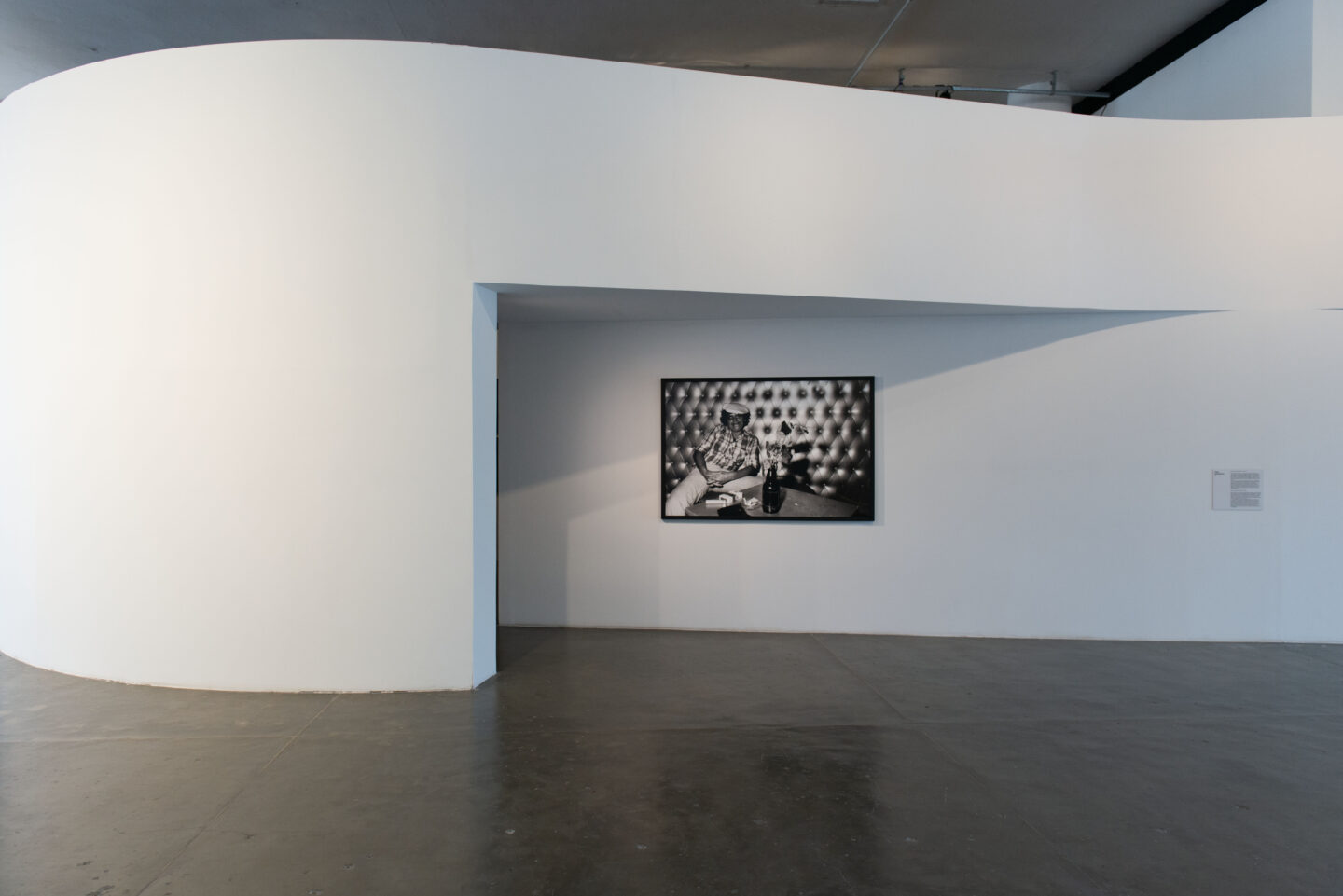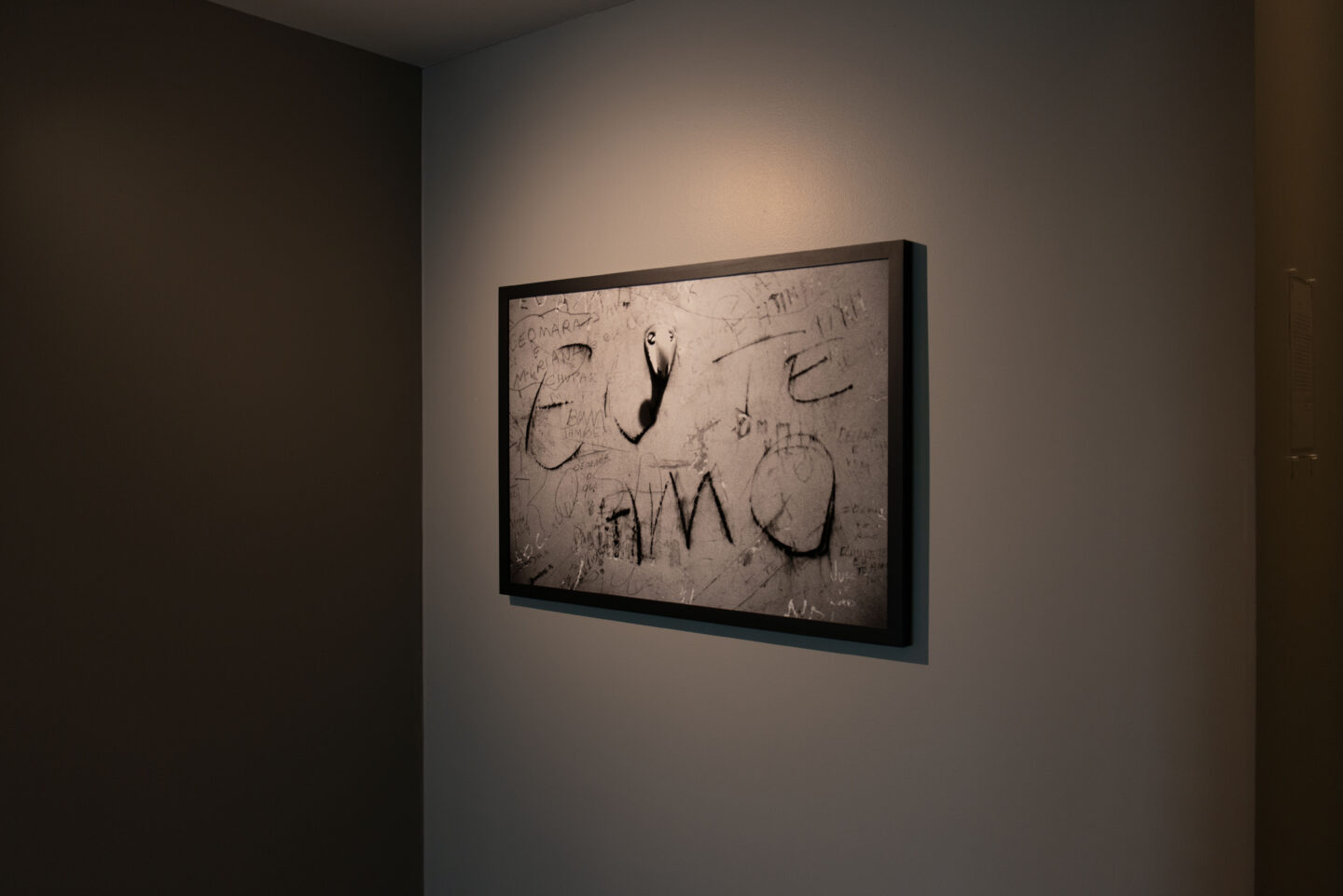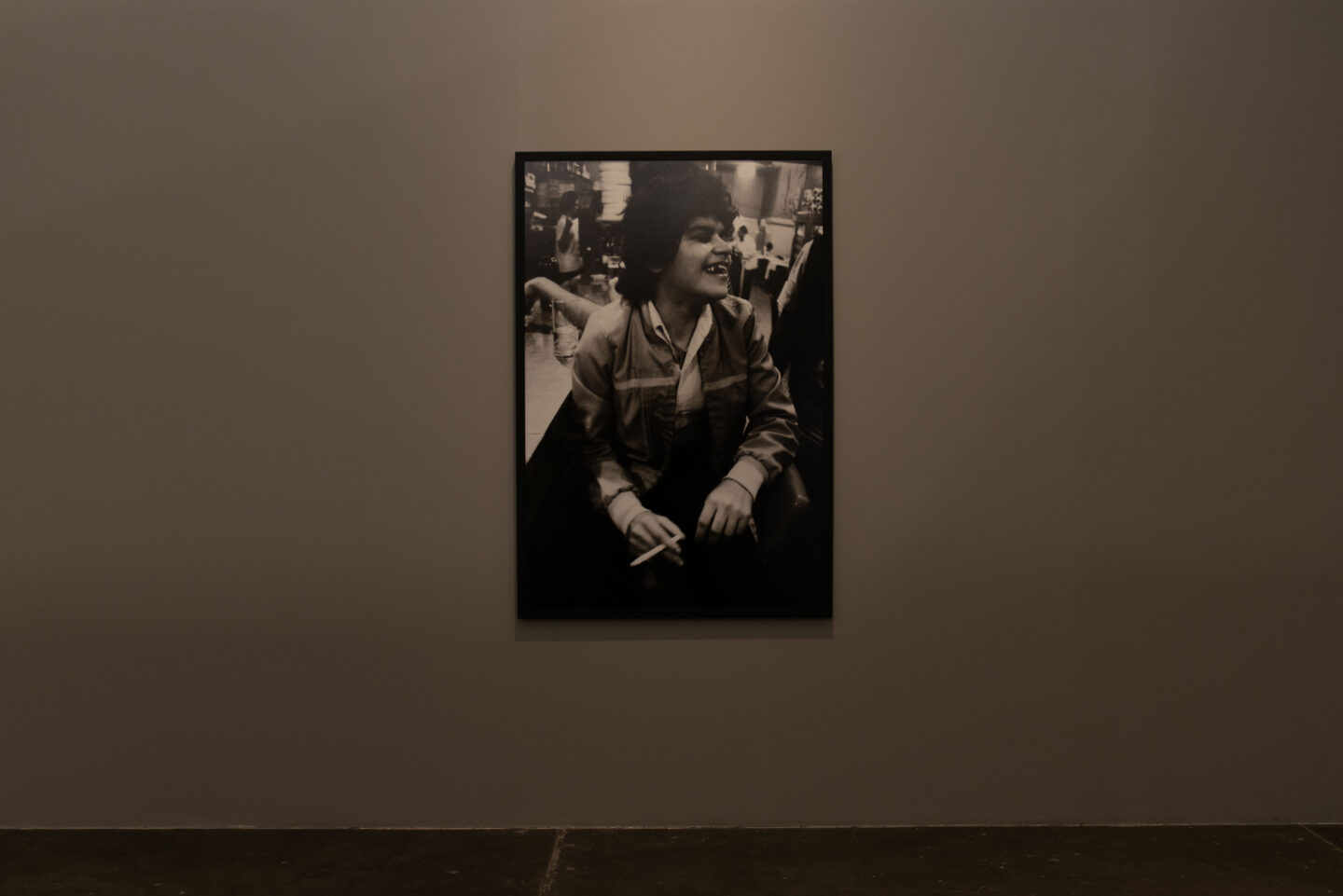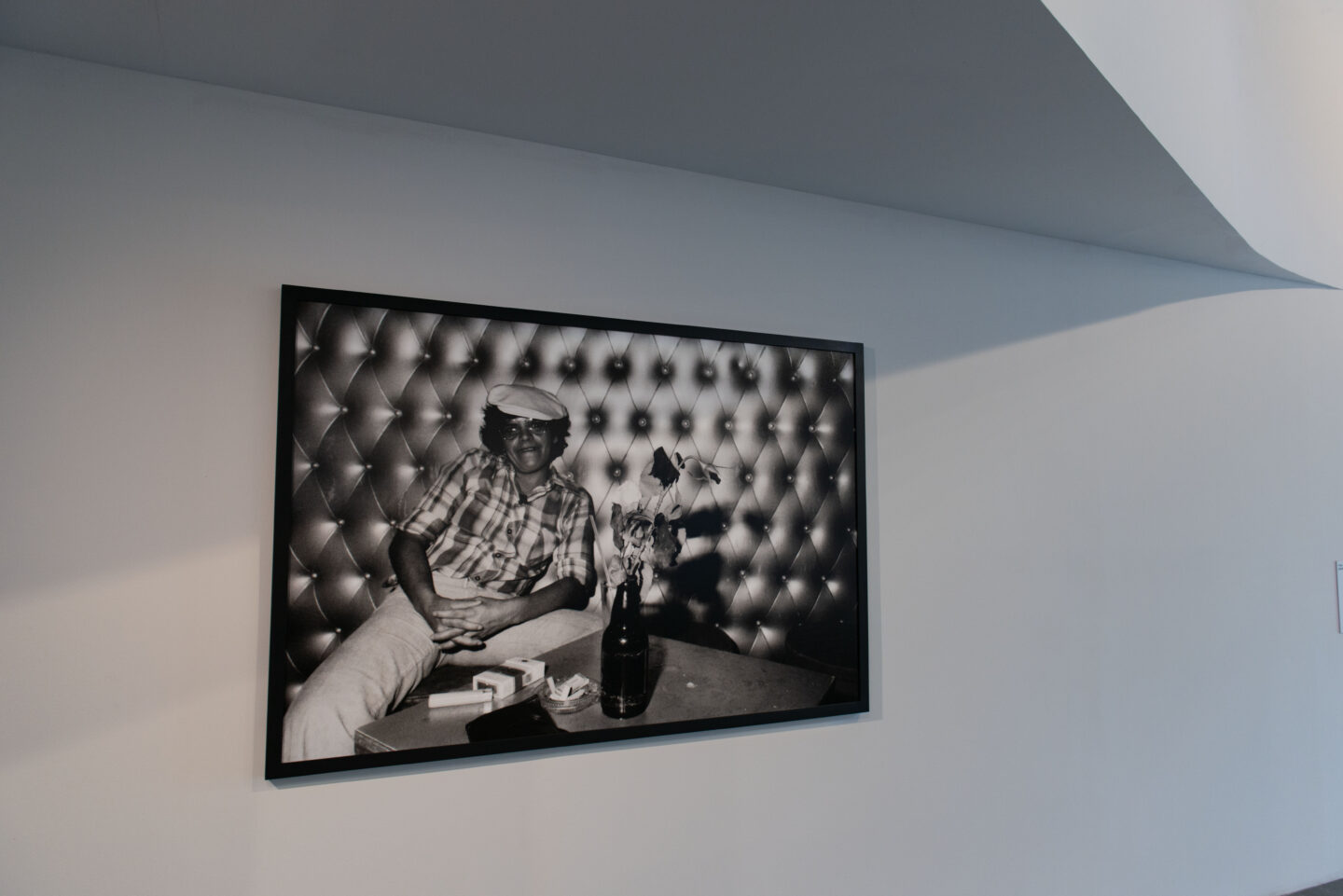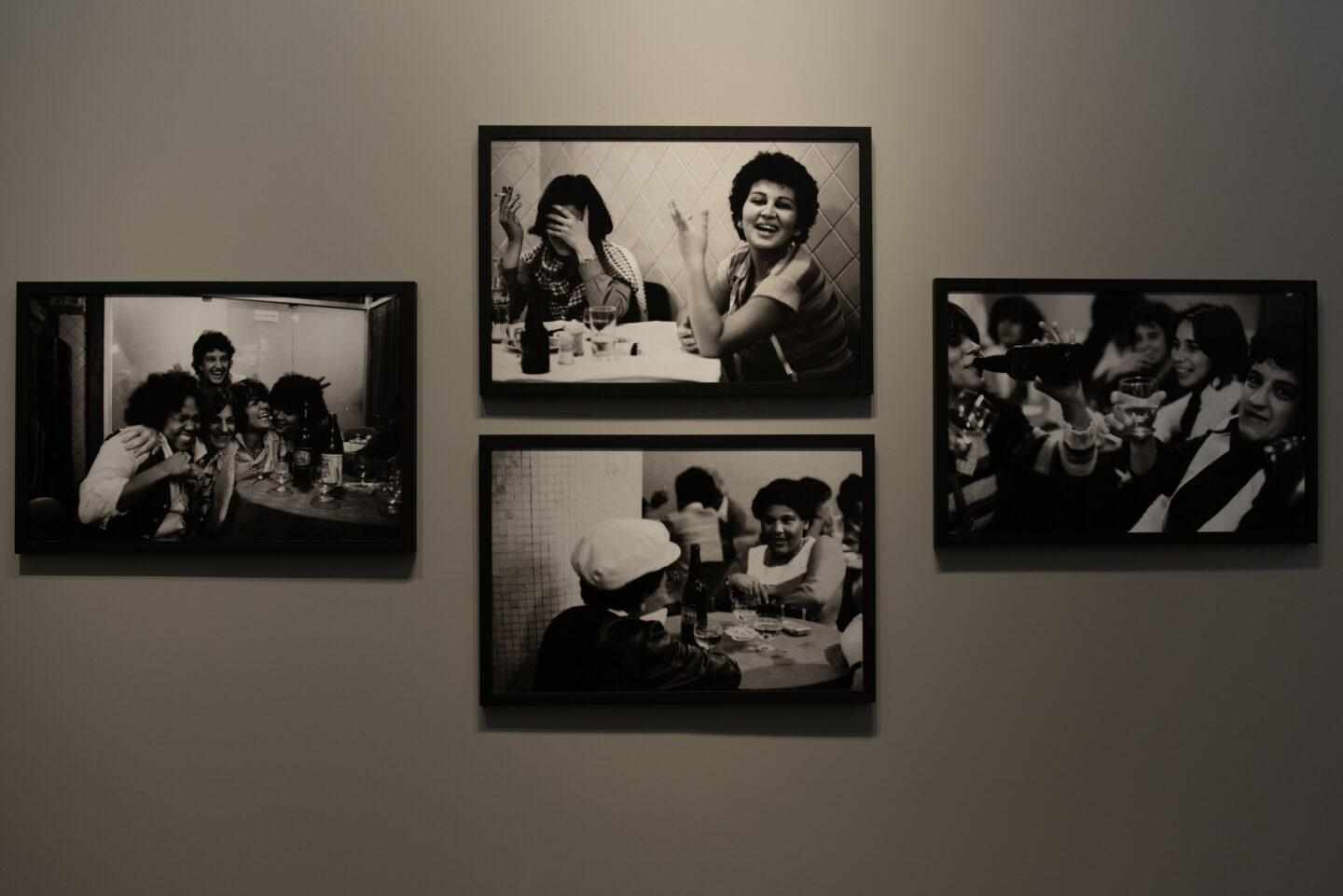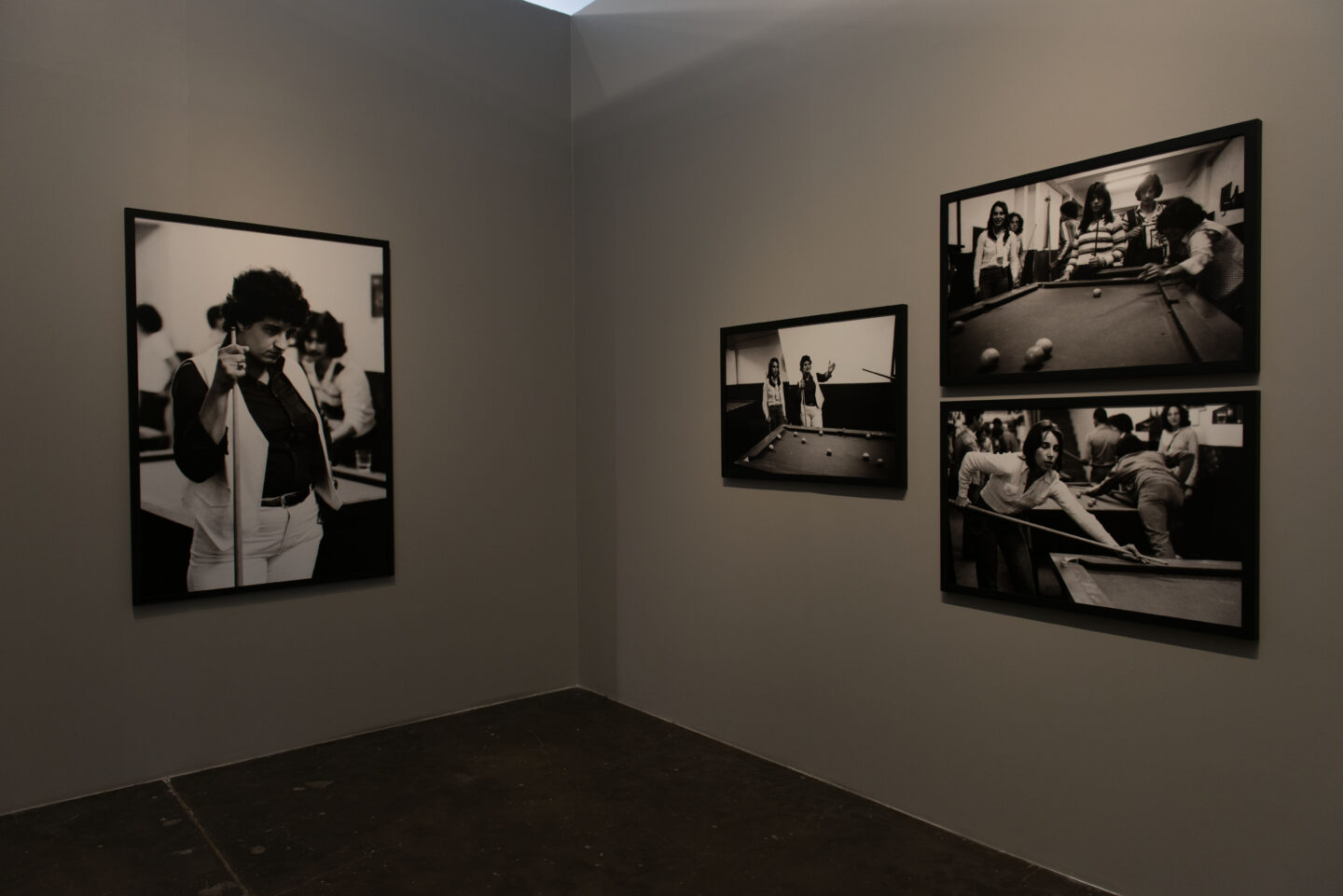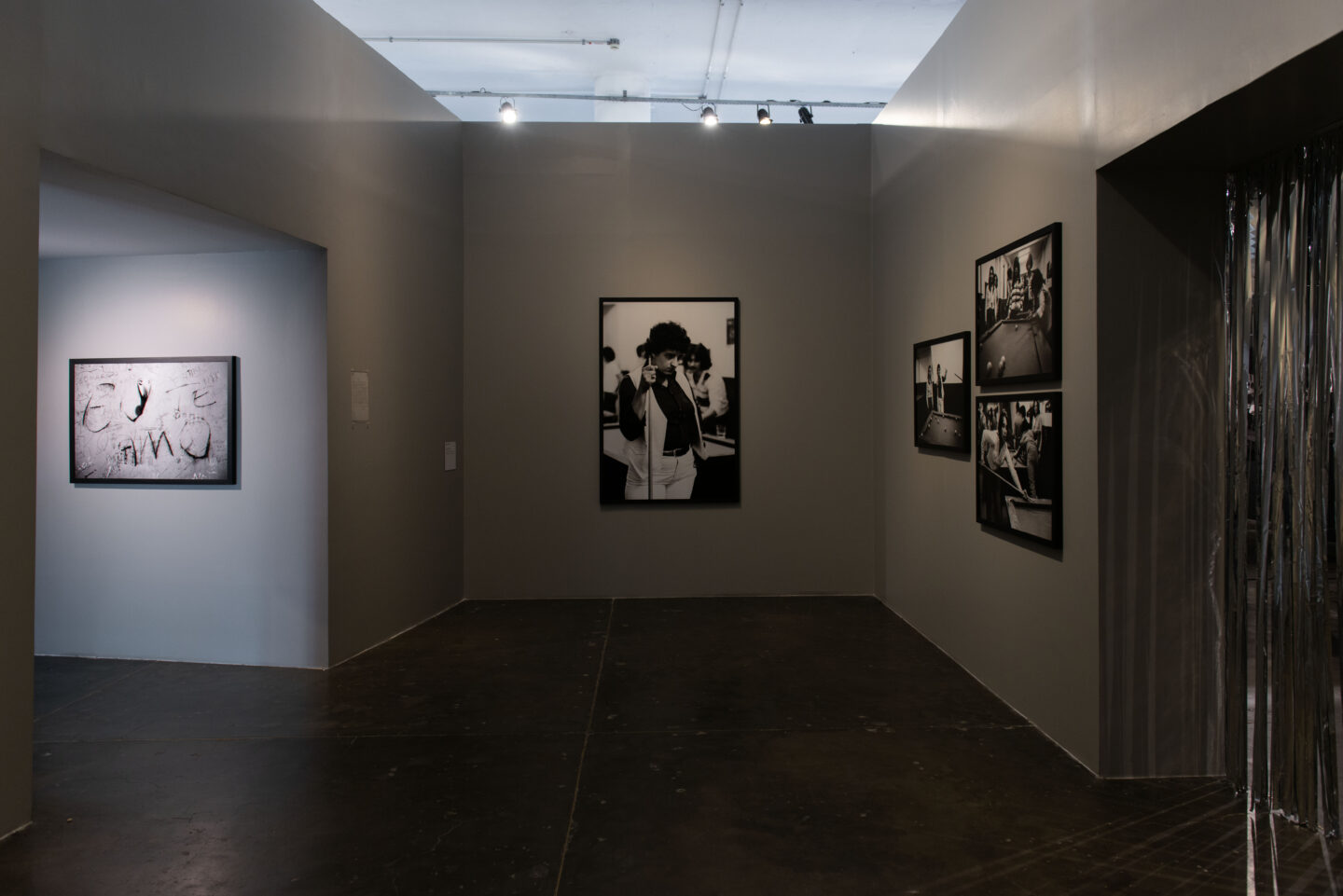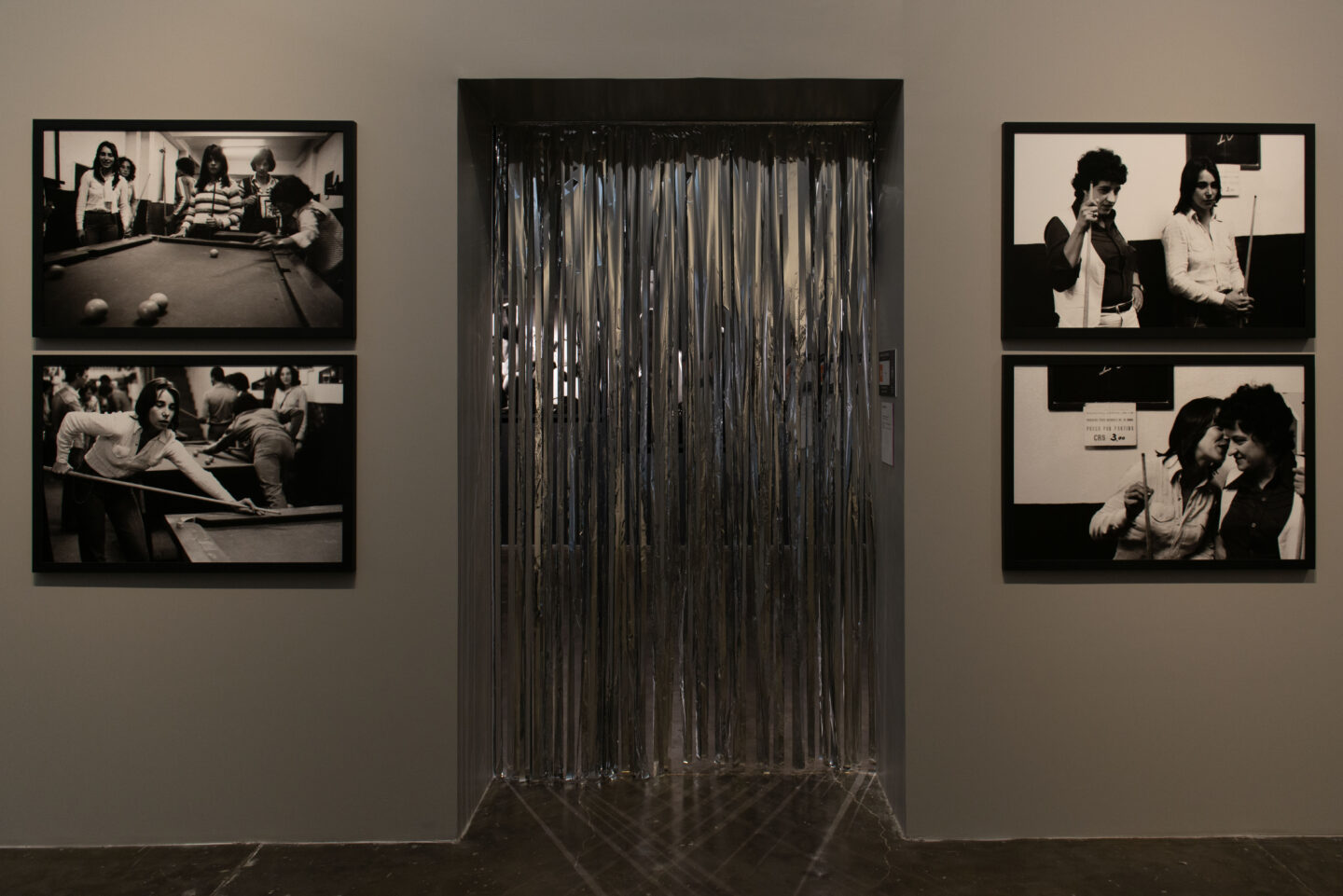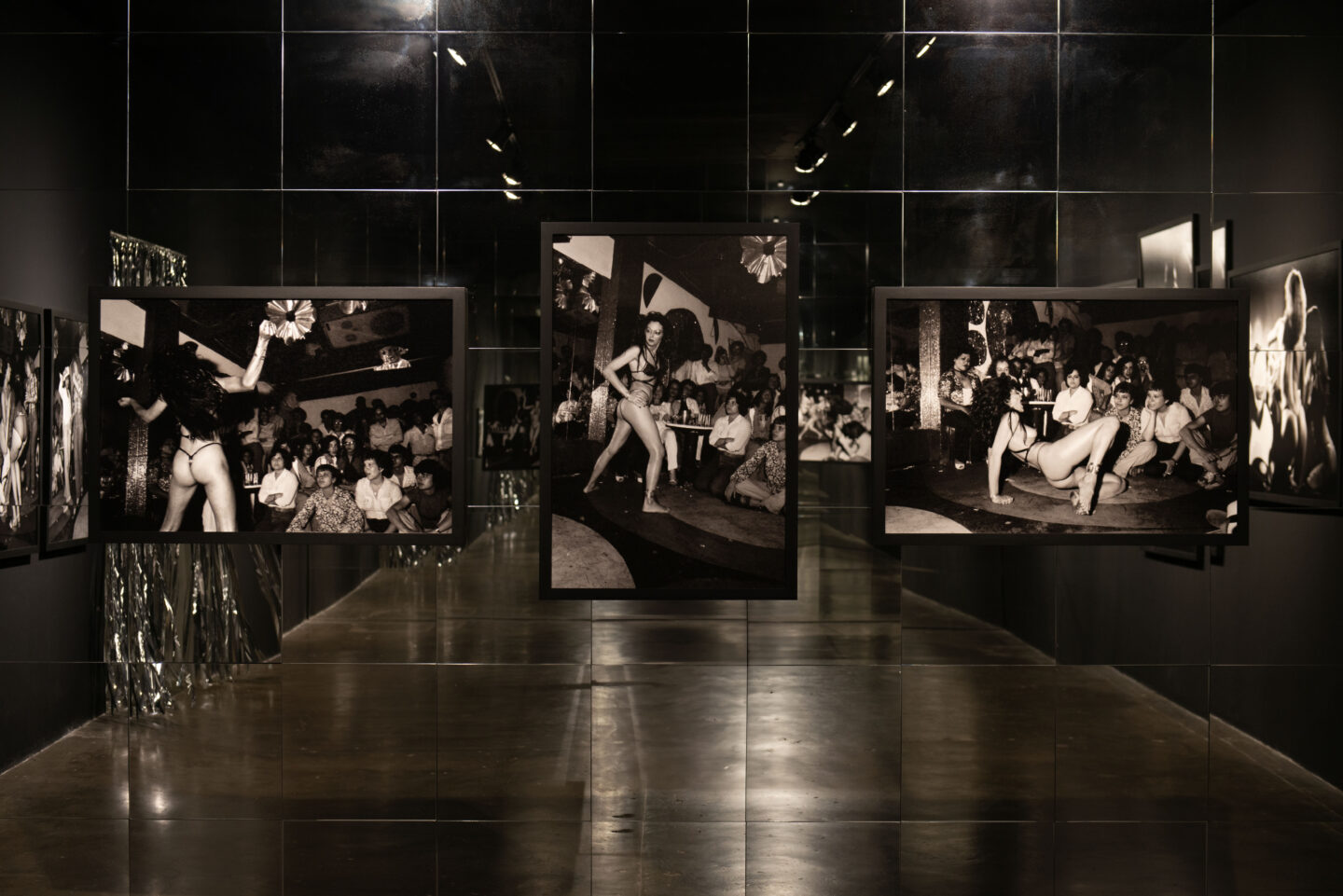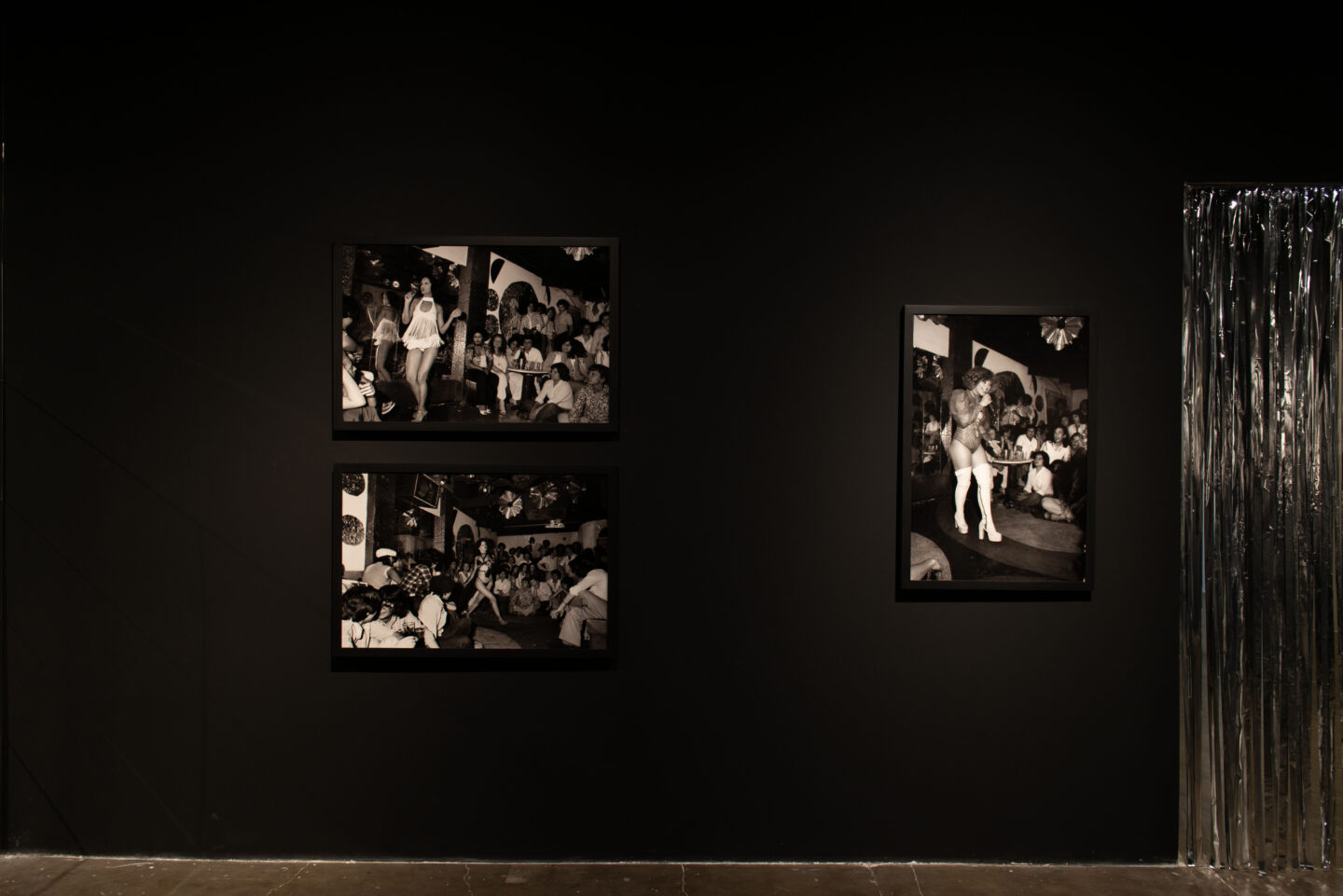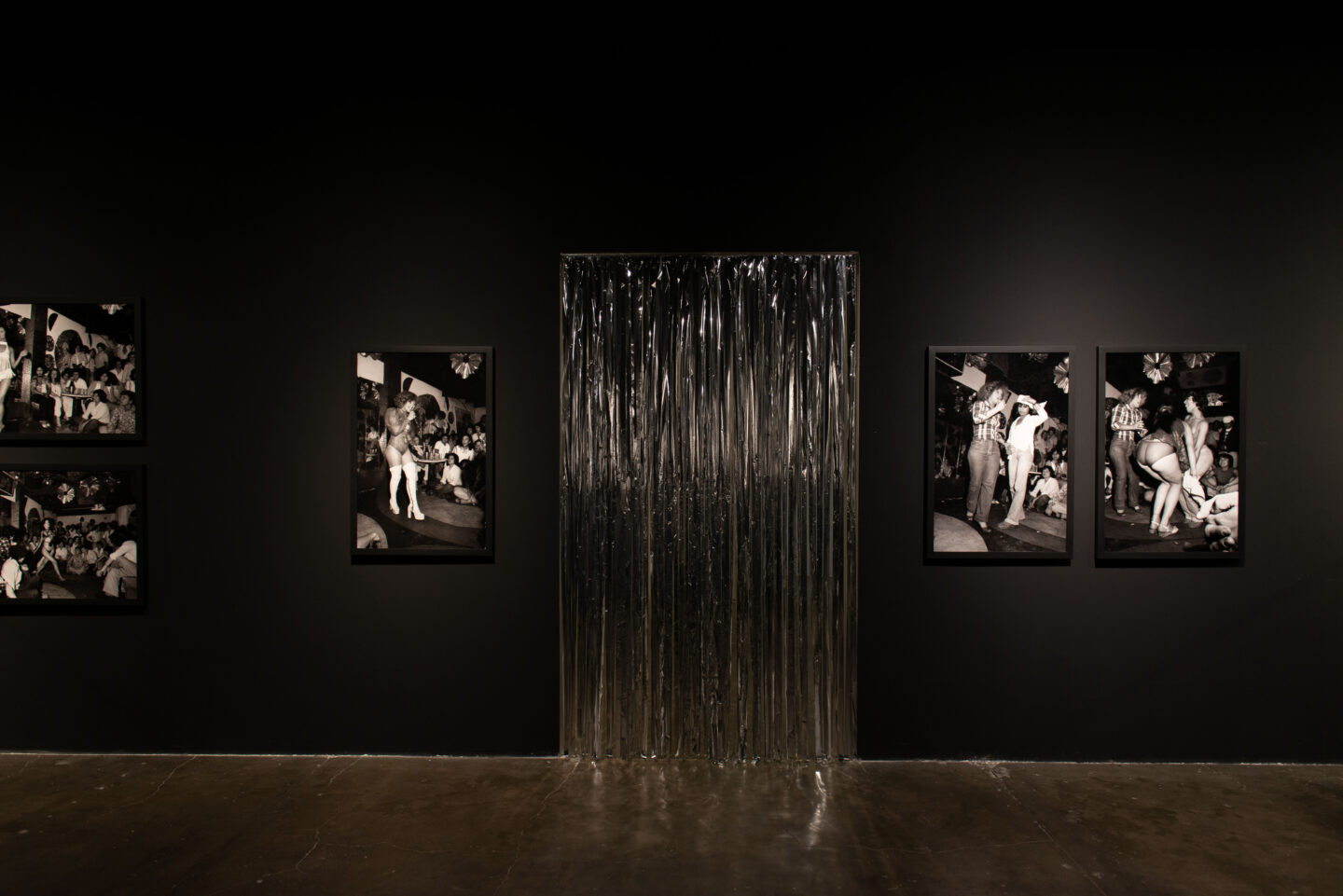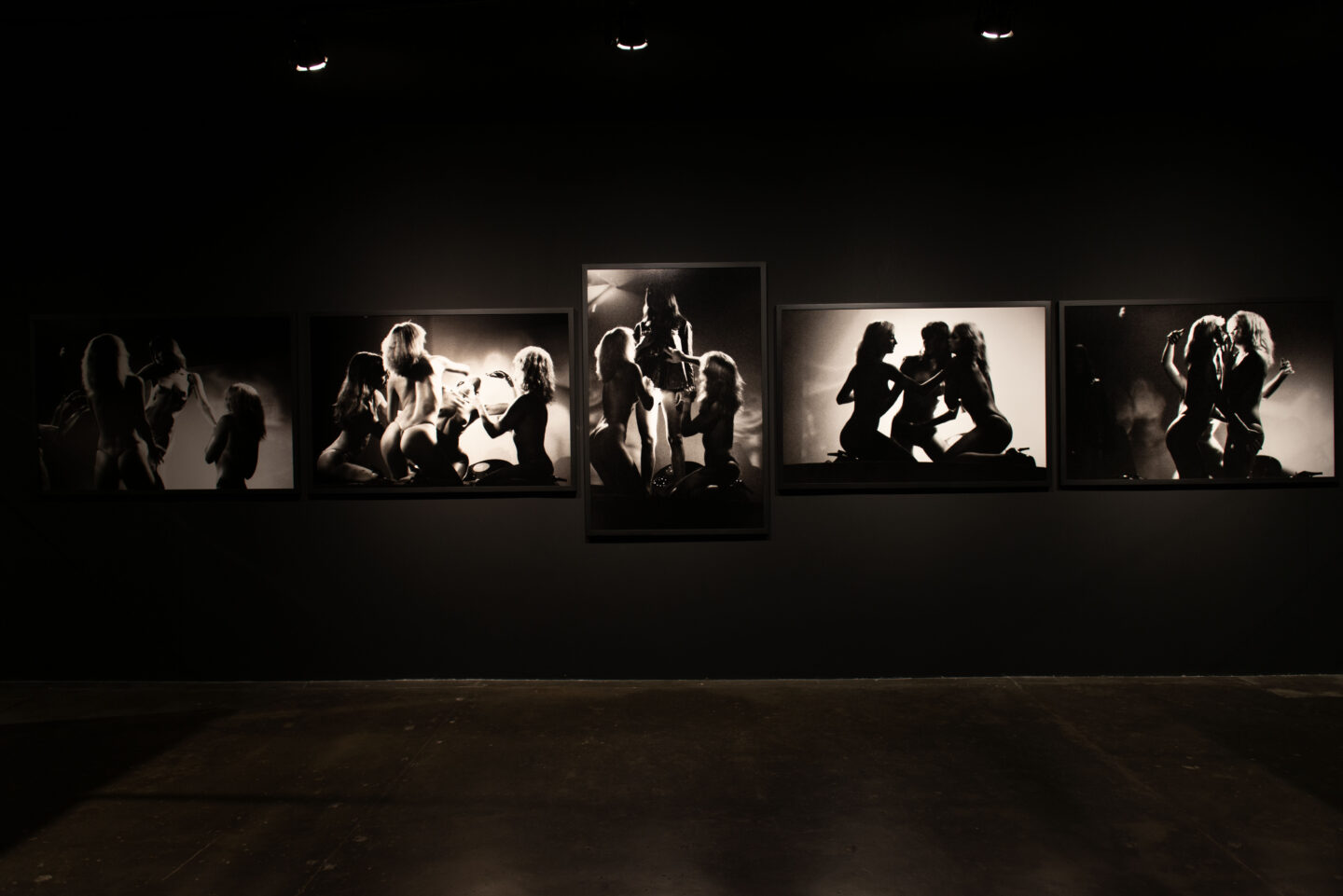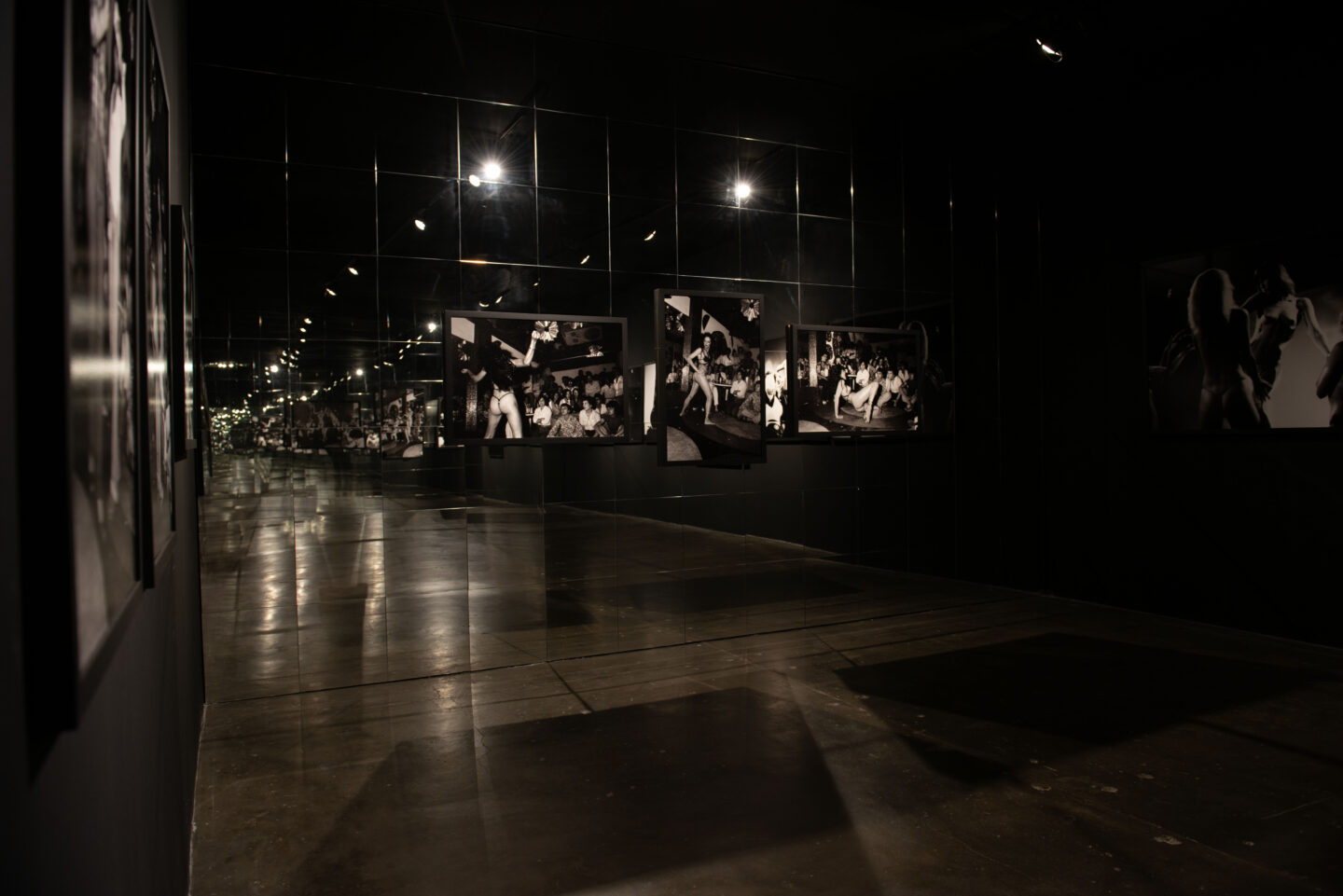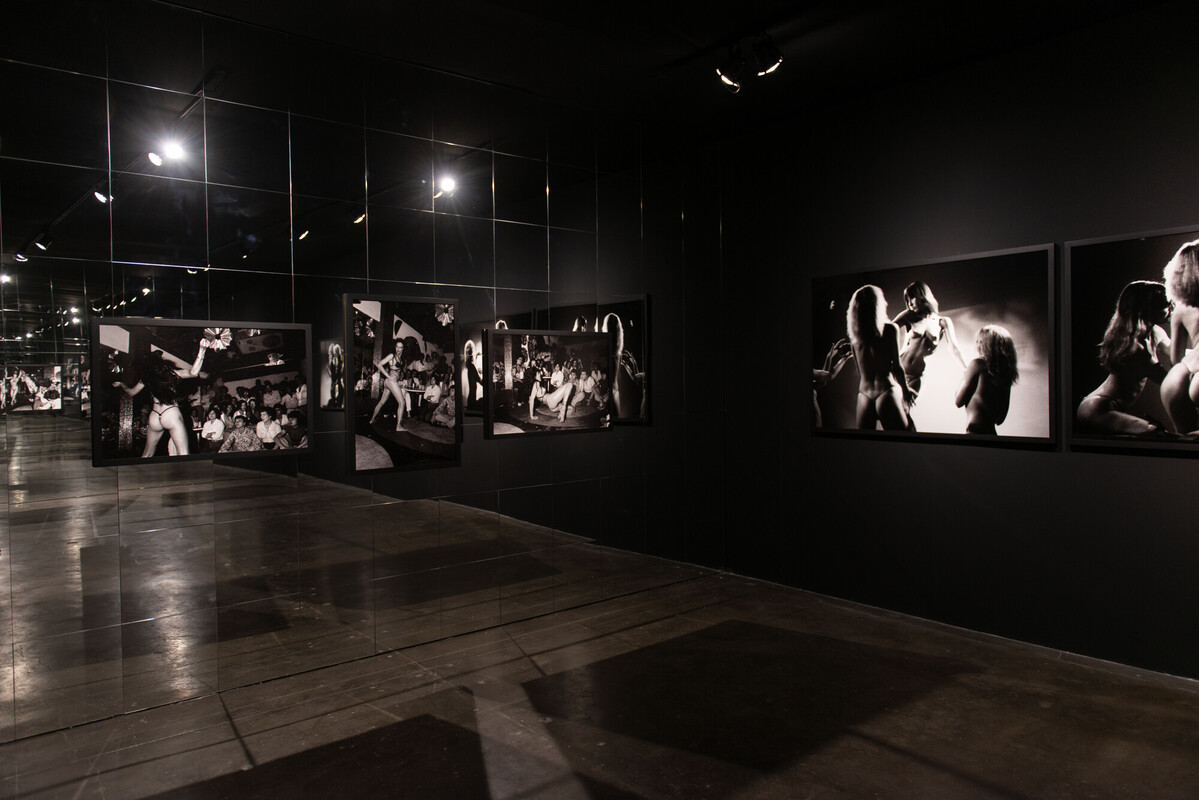
Rosa Gauditano
Photographs relate to time. And this experience is part of a dynamic of the gaze, which begins from a place in the past that points to another time that never ceases to reconfigure itself. This is how Rosa Gauditano’s photographs open time for us. It was Brazil in 1964, when the dictatorship intervened in customs seeking to moralize society. Repression was, explicitly and predominantly, directed against “subversives,” “communists,” “abnormal” people, and people with “deviant” behavior. As a result, black and LGBT¹ people were persecuted, arbitrarily detained, assaulted or raped, and killed.
At the same time, in counterpoint, lesbians created resistance movements. And one such action was the upkeep of places of socialization, such as bars and nightclubs. In 1979, Gauditano, hired by Veja magazine and sensitive towards the political events, made visible the invisible by registering and celebrating lesbian bodies for two months at Ferro’s Bar, in São Paulo. These are records marked by a strong proximity between the photographer and the women who frequented the bar. These are images that, beyond the prevailing stigmatizations, narrated the intimacy of couples, the affective bonds established in the bar, new family configurations, and aesthetically exposed a political resistance.
Although the essay was censored, the young photojournalist had no idea that her gaze would point to the future, a time when lesbian women of the present would occupy the same space as women of the past. As such, the scenes captured bring about new experiences, recreating memories and being renewed by them, because on August 19, 1983, the bar, which witnessed the process of political constitution of the Lesbian-Feminist group (LF), played a leading role in the Ferro’s Bar Uprising – the first demonstration organized by lesbians against discrimination and the silencing of sexuality among women. This date has, since 2008, been recognized in São Paulo as Lesbian Pride Day. And, in 2023, Rosa Gauditano’s Lésbicas [Lesbians] return to propose new reflections.
barbara copque
translated from Portuguese by philip somervell
1. Here we have chosen to keep the spelling of the period.
- Vista da obra Vidas proibidas de Rosa Gauditano durante a 35ª Bienal de São Paulo – coreografias do impossível © Levi Fanan / Fundação Bienal de São Paulo
- Vista da obra Vidas proibidas de Rosa Gauditano durante a 35ª Bienal de São Paulo – coreografias do impossível © Levi Fanan / Fundação Bienal de São Paulo
- Vista da obra Vidas proibidas de Rosa Gauditano durante a 35ª Bienal de São Paulo – coreografias do impossível © Levi Fanan / Fundação Bienal de São Paulo
- Vista da obra Vidas proibidas de Rosa Gauditano durante a 35ª Bienal de São Paulo – coreografias do impossível © Levi Fanan / Fundação Bienal de São Paulo
- Vista da obra Vidas proibidas de Rosa Gauditano durante a 35ª Bienal de São Paulo – coreografias do impossível © Levi Fanan / Fundação Bienal de São Paulo
- Vista da obra Vidas proibidas de Rosa Gauditano durante a 35ª Bienal de São Paulo – coreografias do impossível © Levi Fanan / Fundação Bienal de São Paulo
- Vista da obra Vidas proibidas de Rosa Gauditano durante a 35ª Bienal de São Paulo – coreografias do impossível © Levi Fanan / Fundação Bienal de São Paulo
- Vista da obra Vidas proibidas de Rosa Gauditano durante a 35ª Bienal de São Paulo – coreografias do impossível © Levi Fanan / Fundação Bienal de São Paulo
- Vista da obra Vidas proibidas de Rosa Gauditano durante a 35ª Bienal de São Paulo – coreografias do impossível © Levi Fanan / Fundação Bienal de São Paulo
- Vista da obra Vidas proibidas de Rosa Gauditano durante a 35ª Bienal de São Paulo – coreografias do impossível © Levi Fanan / Fundação Bienal de São Paulo
- Vista da obra Vidas proibidas de Rosa Gauditano durante a 35ª Bienal de São Paulo – coreografias do impossível © Levi Fanan / Fundação Bienal de São Paulo
- Vista da obra Vidas proibidas de Rosa Gauditano durante a 35ª Bienal de São Paulo – coreografias do impossível © Levi Fanan / Fundação Bienal de São Paulo
- Vista da obra Vidas proibidas de Rosa Gauditano durante a 35ª Bienal de São Paulo – coreografias do impossível © Levi Fanan / Fundação Bienal de São Paulo
Rosa Gauditano (São Paulo, Brazil, 1955. Lives in São Paulo) works with photography projects, exhibitions, and books that primarily document marginalized populations. She has participated in numerous solo and group exhibitions in Brazil, London, France, Mexico, Italy, USA, and China. Among her publications are Elas por elas (2017), Povos indígenas no Brasil (2011), Raízes do povo Xavante (2003), and A mesma luta (2021). Her works are included in the collections of Centro de La Imagem and Cineteca de Monterrey (Mexico), MASP, MIS, Museu Afro-Brasil (São Paulo, Brazil), Museu de Fotografia de Curitiba (Brazil), and Fundación Salvador Allende (Santiago, Chile); Cinemateca de Monterrrey (Mexico), among others.

 Português
Português